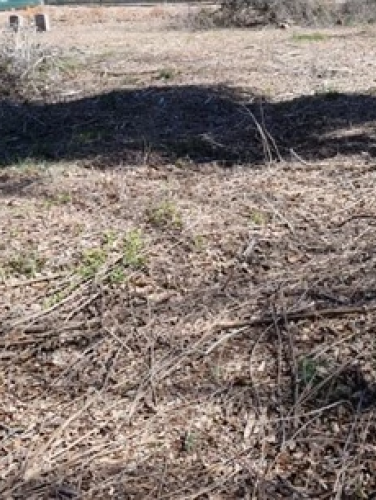
Antioch Missionary Baptist Church Cemetery
(ca. 1907)
Several formerly enslaved persons and their descendants who belonged to the Antioch Missionary Baptist Church are buried in its century-old cemetery.
3712 Monroe Rd, Charlotte, NC 28205
The Antioch Missionary Baptist Church Cemetery is the final resting place of at least seventy-four Charlotteans, including the founding generation of a church that remains an important part of Charlotte’s religious life 130 years after its founding. That first generation included men and women who had been members of an enslaved community in South Carolina, and who had reassembled in Charlotte after emancipation, as well as other formerly enslaved people and their descendants.
Property Quick Links
In about 1885, a group of African American residents of the Charlotte area began to meet as a prayer group in its members’ homes and, weather permitting, beneath a local brush arbor. The group organized as a formal congregation in 1886 in the Cherry community home of South Carolina native Jim McVay (1869-1960). McVay was a member of a group of families joined by marriage who had come to the Charlotte area from Blackstock, South Carolina, located between Chester and Fairfield Counties. Among this extended family were several people who had been born into slavery including McVay’s father Elijah McVay (b. 1826), the oldest of the early congregation members known to be buried at Antioch. Other members born before emancipation included Daniel Brice (b. 1836), his daughter Bella Brice Boyd (b. 1858), and Patsy Strong McVay (b. 1853). Members of the extended Bogan family from Anson County were also among the early Antioch congregants after they settled in the Crab Orchard community.
In about 1895, the Antioch congregation purchased the land upon which the cemetery is presently located. They built their first dedicated church building on that site in 1900, and the earliest recorded grave in the cemetery dates to 1907. Their first minister was Reverend S. W. Waddell who, like many of his congregants, was born into slavery in South Carolina. He served the congregation for forty years. Jim McVay was named the congregation’s first deacon, an office he held until his death sixty years later. The original building was destroyed by fire. A second church was constructed on the site in 1922. It included an assembly and dining area, office, choir room, pastor’s study, and indoor restrooms. The congregation gradually outgrew that space and moved to a new sanctuary at 232 Skyland Avenue in 1975. The Monroe Road church no longer stands, but the congregation continues to care for the century-old nearly half-acre cemetery.

